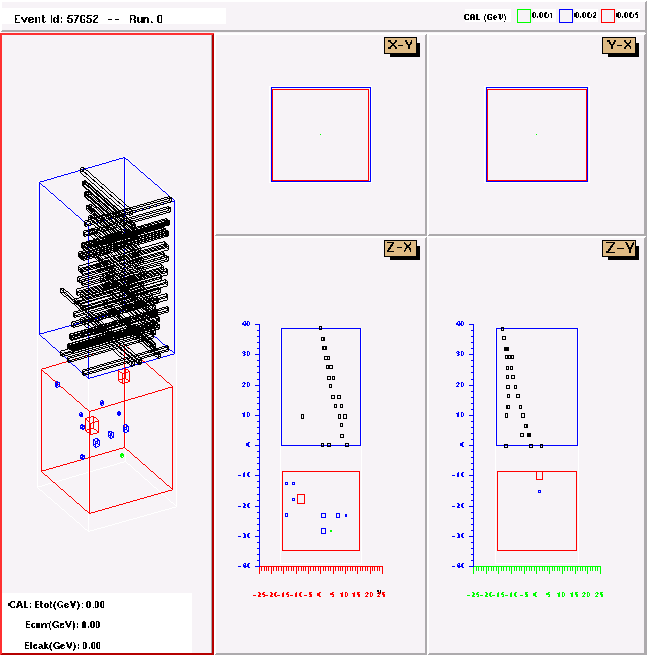
Event 11113: a gamma ray?

This event looks like a strong candidate for a gamma ray -- the very thing GLAST is designed to study! (And which can only be found by sorting through and discarding the far-more-numerous cosmic-ray events.) Note that none of the ACDs were triggered in this event. (The black rectangles shown on diagrams of other events are missing!)
Early on, the track breaks into two seperate showers -- typical of gamma rays, which can produce high-energy particle-antipartcle pairs, such as an electron and a positron, when they interact with matter. The tracks of the two daughter showers diverge noticably, making this seem like a low-to-moderate-energy event, an impression backed by the modest energy deposited in the calorimeter. (GLAST can detect cosmic gamma rays over a huge energy range, from 1 Mev to 300 Mev or more...)

Event 10056: a high-energy cosmic ray?
Event 20068: a slow antiproton?
Event 1416: a low-energy cosmic ray?
Event 11113: a strong gamma-ray candidate!